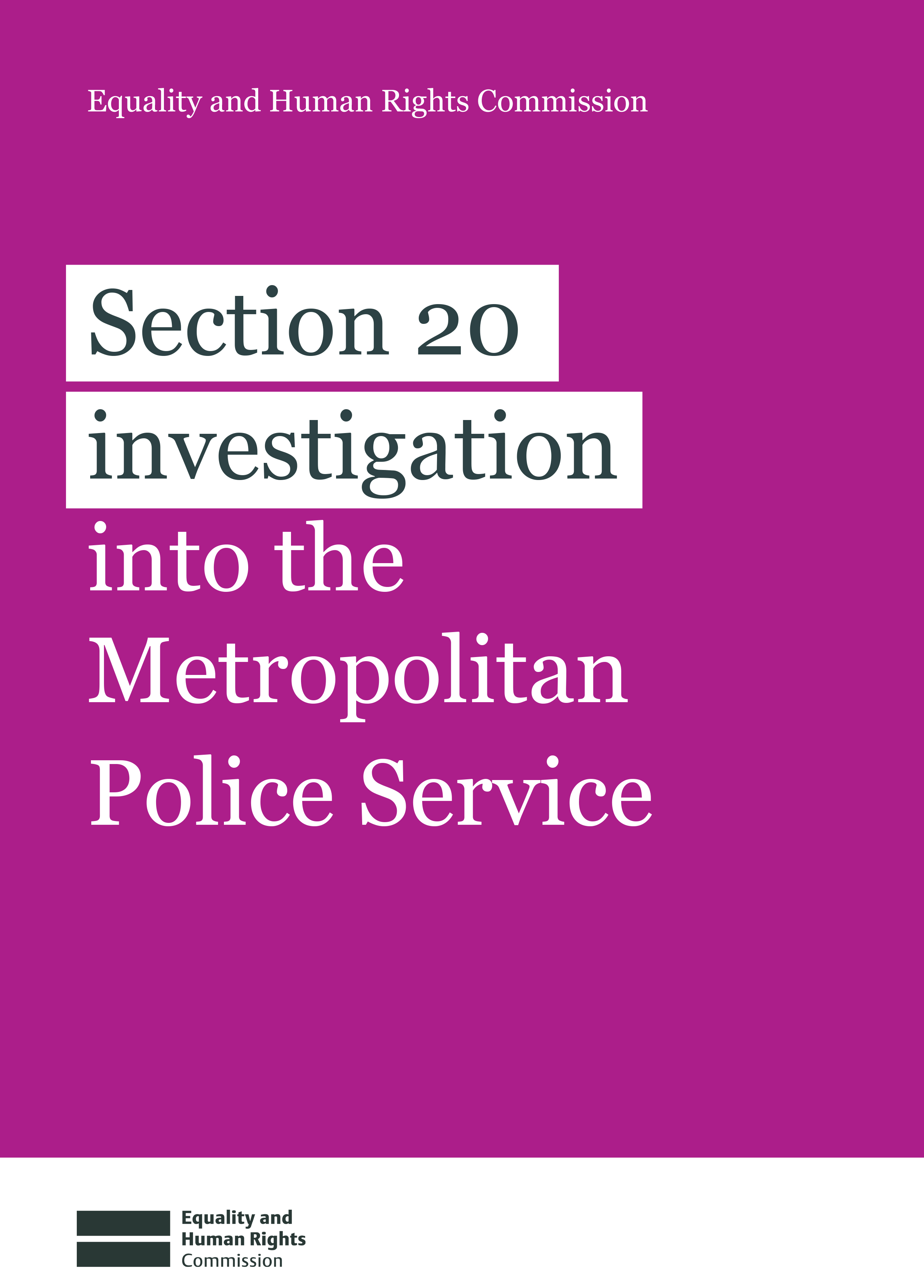
Ala Abbas
A major investigation by the Equality and Human Rights Commission (EHRC) into workplace discrimination within the Metropolitan Police Service was published on September 8. It found that police officers and staff in the Metropolitan Police Service (MPS) who raise complaints of discrimination on the grounds of race, gender or sexual orientation, expected to be victimised as a result and feared reprisals, such as being denied promotion.
The Report found that the expectation that people making complaints would then be victimised was consistently raised during interviews with individual police officers and staff and with senior staff and officers at the MPS. Some individuals were too fearful to talk about their experience and contacted the investigation anonymously.
According to one BME officer quoted in the Report: “Individuals are living, if you like, in a culture of fear of raising their head above the parapet because if they do then they might as well consider leaving their career behind or not going to get promoted or they will be disciplined through no fault of their own other than having the courage to say actually this is wrong.”
A senior BME officer told the Report: “I personally would never have chosen to take out a Fairness at Work against a white officer based on the fact that I’ve been discriminated against because of my race. It would be virtually impossible to prove and all it does is worsens the situation. And it’s really an issue of last resort for most officers.”
According to the report: “This expectation of victimisation prevents people making complaints and limits the MPS’s ability to tackle discrimination. The police culture of supporting loyalty could encourage behaviour that could be perceived as victimisation and this is counter to the Police Code of Ethics.”
Laura Carstensen, lead EHRC Commissioner for the investigation, said: “It is unacceptable that police officers and staff often expect to be victimised if they complain about discrimination, and particularly so when this is the organisation to which all Londoners look for protection and fair treatment.”
The Report pointed out the concerning implications of victimisation within such an important organisation: “The consequences of victimisation by a police force may also be more serious than for any other employer because of the powers available to them. These include, for example, arrest and surveillance. Cases have been reported in the media where officers who have made complaints of discrimination have been arrested. Even if the arrests were justifiable by standard police operating procedures, this heightens any perceived risks of complaining.”
The Commission found there to be a problem in the quality of data surrounding the MPS’s internal disciplinary procedures, concluding that “poor record keeping of individual cases and inconsistent data prevents identification of systemic problems and inhibits action being taken to address them.”
The Commission went on to say that, despite anecdotal evidence, the poor quality of data and information available prevented them from making a legal case against the MPS. Consequently, the Report recommended that the MPS “should review how its data is collected, stored and retrieved so it can undertake regular statistical analysis to identify and tackle potential issues and measure progress.”
The Report identified a culture problem within the MPS that could contribute to negligence in dealing with allegations of discrimination. It found a “misplaced loyalty by MPS police officers and staff” and “a general reluctance within the MPS to admit mistakes and apologise for them.” It also found “some managers lack the skills and confidence to handle difficult situations, particularly where these relate to diversity. This lack of confidence in handling difficult situations is particularly evident regarding race.”
The MPS’s “painful history” around discrimination was described as a key reason for a lack of confidence by some managers in handling difficult situations, particularly where these relate to diversity.
One of the Report’s recommendations is that Home Office regulations need to change to allow discrimination complaints to be dealt with internally. Current regulations mean that complaints involving discrimination go straight into a misconduct procedure, where the focus is on blame and the outcome for the perpetrator could be dismissal. This could be replaced with a grievance process, according to the Report, which has a less negative outcome for the perpetrator.